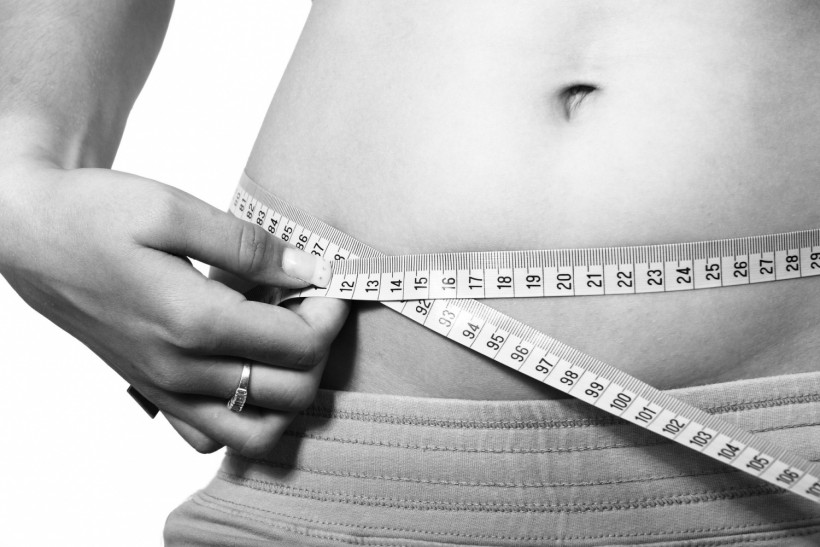
(Photo : PublicDomainPictures from Pixabay)
Women lose weight mostly through exercise and diet, but there are also other aspects. Research shows that many factors, including stress and sleep quality, can alter appetites, metabolism, diet, and fat storage. Luckily, small changes to your daily routine can help you lose weight.
1. Having healthy snacks at home and work
Always having nutritious snacks at home and work can prevent overeating sugar and salt. Because people prefer easy snacks and sweets, don't stock up. One study found that having unhealthy meals at homemade weight loss is harder.
Healthy snacks at both work and home can help someone satisfy their nutritional requirements while avoiding sugar and salt. Snacks include:
-
Unsalted nuts
-
Fruits
-
Cut vegetables
-
Low-fat yogurt
-
Old seaweed
2. Avoiding processed foods
Processed foods have excessive sodium, fat, calories, and sugar. They have fewer nutrients than entire foods. Processed meals are more prone to promote addictive eating patterns, which often lead to overeating, according to Dallasnews.com.
3. Add protein.
Protein helps lose weight. High-protein diets prevent or treat obesity, according to research.
Overall, rising diets of 25-30 grams each meal enhanced hunger, body weight management, risk of heart disease factors, and any of these health outcomes. These foods are high-protein and low-fat. Lean proteins include:
-
Fish
-
Legumes
-
Poultry
-
low-fat cottage cheese
-
Tofu
4. Sugar-free
Avoiding sugar isn't easy, but cutting out processed food is. Most of the glucose humans eat is fructose, which the liver turns into fat. The discharge of this visceral fat into the vascular system even by the liver, which also occurs after the liver converts the glycogen into fat, can lead to weight gain.
5. Plain coffee
Coffee without fat and sugar may be healthier. Coffee increases lipid and carb metabolism. Coffee drinking also reduces hyperglycemia and liver disease risk.
6. Maintaining fluids
Water is the best beverage. It is calorie-free and healthy. Water daily boosts metabolism. Water before meals reduces their intake. Finally, replacing sugary drinks with water reduces daily calorie intake.
7. Limiting drink calories
Beverages like soda, cranberry juice, and sports and energy drinks frequently contain excessive sugar in people, which can lead to obesity and make it difficult to lose weight. Alcohol and specialty foods Coffees like lattes, which contain milk and sugar, are examples of other calorie-dense beverages.
Each day, people should attempt to replace at least one of the following drinks with water: sparkling water flavored with lemon or herbal tea.
8. Steer clear of refined carbohydrates.
Consuming whole grains can help with weight loss and disease prevention. Refined carbs may be more detrimental to the body's metabolism than saturated fats. When glucose from refined carbs enters the bloodstream, the liver responds by producing and releasing fat.
If you wish to weight loss and keep it off, choosing to eat whole carbs is a healthier choice. Foods that include reduced or simple starches include the following:
-
white rice
-
Sliced bread
-
Blanched flour
-
Candies
-
Cereals
-
Extra sugars
-
Various pasta varieties
Whole-grain versions of pasta, bread, and rice are all readily available, and they can all help with weight loss and illness prevention.
9. Alternate-day fasting
Short-term fasting cycles could aid in weight loss. A study found that alternate-day fasting or intermittent fasting can aid in weight loss and maintenance. Not everybody should fast, though. Kids, growing teenagers, pregnant women, the elderly, and those with underlying medical issues may all experience dangers from fasting.
10. Keeping a food journal and calorie counting
Overeating can be prevented by keeping track of calories. A person would be aware of their exact calorie intake if they count calories. With this knowledge, they can reduce their calorie intake and choose healthier foods.
An individual can reflect on what and how little they eat each day by keeping a food journal. Additionally, kids can make sure they are consuming adequate amounts of each nutritious food category, such as veggies and proteins, by doing this.
11. Flossing your teeth before bed or in the morning
A person who habitually eats snacks at night may be less tempted to do so if they brush their teeth early in the evening.
12. Increasing fruit and vegetable consumption
A diet rich in fruits and vegetables can help someone lose weight and keep it off. The authors of a comprehensive study support this claim by writing that, even if people are not instructed to consume less of other foods, encouraging them to eat more vegetables and fruits is unlikely to cause weight gain.
13. Cutting back on carbohydrates
Simple carbohydrate-free diets can aid in weight loss by reducing the quantity of added sugar consumed. Whole carbs, healthy fats, fiber, and lean meats are the main components of wholesome low-carbohydrate diets. This should be a durable, lengthy dietary change rather than a brief restriction of all carbohydrates.
According to research, limiting refined carbohydrates helps a person by lowering their body's bad cholesterol levels and enhancing metabolic risk factors.
14. Consuming extra fiber
Fiber can be advantageous for someone who is trying to lose weight in a number of ways. According to research published in Nutrition Reviews, increasing fiber intake can make an individual feel fuller sooner.
Additionally, fiber aids in weight loss by promoting digestion and preserving a healthy balance of gut bacteria.
15. Increasing the frequency of regular cardio and resistance training
Many people have sedentary jobs and engage in little regular exercise. A regular exercise program should combine resistance training with a cardiovascular (cardio) workout, such as walking or running.
While resistance training helps the body develop lean muscle mass, cardio helps the body burn calories quickly. People with more muscle mass can burn more calories while at rest.
Additionally, studies have shown that those who engage in high-intensity circuit training can reduce their body fat more quickly and experience better improvement in their heart system than those who use other well-liked weight loss techniques.
16. Taking in whey protein
Whey protein users may gain more lean mass while losing body fat, which can aid in weight loss. According to research, whey protein may help people lose weight and body fat when used in conjunction with physical activity or a weight-loss diet.
17. Slowly consuming
A person's total calorie intake at one sitting can be decreased by eating more slowly. This is due to the fact that the brain may take some time to recognize when the stomach is empty. According to one study, hasty eating is related to obesity. While the study was unable to suggest interventions to encourage people to eat more slowly, the findings do indicate that doing so can help people consume fewer calories.
Slowing down while eating can be facilitated by chewing food extensively and dining with others.
18. Include chili
Spices like chili powder frequently contain the chemical capsaicin, which may have advantageous effects. For instance, research suggests that capsaicin, albeit at very low levels, can aid in fat burning and increase metabolism.
19. Sleeping more
Obesity and insufficient sleep are related. Researchers discovered that women who reported having poor or fair sleep were less likely to shed pounds than those who said they had very good sleep.
20. Use a smaller plate
A person may be able to better manage their portion sizes by making their plate smaller. Smaller plates might have a psychologically beneficial effect. People have a tendency to overfill their plates, so making the plate smaller may help limit how much food is consumed at one time
* This is a contributed article and this content does not necessarily represent the views of hngn.com








